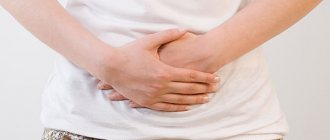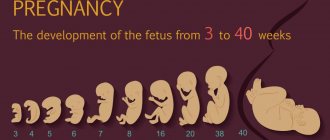The female reproductive system is an incredibly delicate part of the body and is easily influenced by negative factors. Many girls had various deviations from the norm in the menstrual cycle and sensations during it. Which ones are acceptable and which ones are considered pathological? In this matter, you cannot rely on the characteristics of the menstrual cycle of relatives or friends. Symptoms should be taken seriously and distinguished between dangerous and normal. This article will tell you how to understand this issue.
Duration of the menstrual cycle
Some women worry about irregular menstrual cycles. The period from the first day of menstruation to the beginning of the next is the menstrual cycle. Only 30% of women experience regular menstruation very quickly. For others, it takes about a year, or maybe even more. But this does not mean at all that after this year, menstruation will occur exactly at intervals of 28 days.
A 28-day cycle is considered ideal; it is also called a lunar cycle. But stress, psychological overload, various diseases, and not very good ecology do not pass without leaving a mark on human health.
All of the factors listed above may well be the reasons for the failure of the menstrual cycle.
Causes of pain
Pain during ovulation appears under the influence of various factors. Experts identify several main reasons , which combine factors that turn the release of an egg into a painful period. Such reasons include:
- increased sensitivity of the body;
- hormonal changes;
- an increase in the level of the hormone progesterone;
- disturbance of estrogen levels;
- follicle rupture;
- microtrauma during the movement of the egg to the fallopian tubes.
What happens during menstruation
At the end of menstruation, the endometrium awaits a fertilized egg. If conception does not occur, then the amount of hormones in the blood decreases sharply, which leads to a narrowing of the endometrial vessels, and as a result, to a decrease in its blood supply. The result of this is a gradual separation of the mucous membrane, followed by its rejection from the uterus. Remnants of the mucous membrane come out simultaneously with blood, which accumulates due to ruptures of small vessels. This process does not occur simultaneously throughout the entire mucous membrane.
Some parts of it begin to disintegrate earlier, and some a little later. That is why menstruation lasts for 3-5 days. Along with the natural removal of the remnants of the upper endometrial layer, a layer of new mucosa grows. That is, menstrual bleeding is a transitional stage from one cycle to another.
The duration of menstruation is influenced by the use of contraceptives - oral contraceptives, as a rule, reduce the duration of menstruation, and the installed IUD, on the contrary, increases their number. A healthy woman can lose about 50 g - 150 g of blood during one menstruation. Menstrual fluid consists not only of blood, it contains a special secret secreted by the glands of the uterus, particles of the mucous membrane and cells of the vaginal epithelium.
I want to ease your pain...
After all the consultations with the doctor and establishing that the woman’s health is not in danger, it is worth thinking about how to relieve ovulation pain. This can be done by taking various pain medications. You can, as mentioned above, take oral hormonal contraceptives. In this case, you also receive protection from unwanted pregnancy.
Heat helps quite well in waiting out and easing pain. Take a hot bath with foam and salt, and if this is not possible, then use the services of an ordinary heating pad. Place it on your stomach and feel how the warmth drives the pain away from your body. Heat causes blood flow to flow more actively, which leads to a relaxing effect and blocks pain.
You can also use the services of various spas. Treatments such as aromatherapy, relaxing massage and many others help to relax the whole body. They are also an excellent distraction from pain.
Stages of menstruation
During the first few days of your period, estrogen levels become very low. This is a real signal for the hypothalamus, which begins to secrete releasing hormones. Under their influence, the pituitary gland increases the secretion of luteinizing (LH) and follicle-stimulating (FSH) hormones. These hormones, entering the blood, reach the ovaries and stimulate the release of the hormone estrogen in them. These hormones have a positive direct relationship. That is, the greater the amount of one hormone released, the more they stimulate the release of other hormones.
Under the influence of estrogens (estriol, estrone, estrodiol), follicles with eggs grow and develop. One of the follicles - the dominant one - matures completely for ovulation. This stage of menstruation is called follicular, since this is where the follicles mature.
The duration of the first stage differs significantly among women. It is the number of days during which the follicle matures that determines the duration of the entire menstrual cycle, since the other stages take approximately the same period of time. For example, with a classic menstrual cycle of 28 days, follicle maturation takes about 14 days. With a 25-day cycle, 11 days are required, and with a 32-day cycle, this requires 18 days.
During the follicular stage, the egg begins to grow, and by the end of it it increases in size by almost 5-6 times. The follicle, in turn, also increases greatly in size, which is why, when it matures, it seems to protrude above the surface of the entire ovary, as a result of which the ovarian wall thins in this place. Then the mature follicle ruptures, and an egg is released into the abdominal cavity, that is, ovulation occurs.
The second stage of menstruation is the period of the corpus luteum. Immediately after ovulation, in the place where the ruptured follicle was located, the corpus luteum begins to form, secreting the hormones estradiol and progesterone. These hormones stimulate the uterus to prepare for a possible pregnancy. The duration of this stage is always the same for almost every woman, and is equal to two weeks.
When fertilization occurs, the corpus luteum continues to enlarge and secrete hormones until the placenta is formed. If fertilization of the egg does not occur, the corpus luteum gradually decreases and simply degenerates into scar tissue. Accordingly, it produces fewer and fewer hormones, and then their release stops altogether. After this, the “zero” or ahormonal phase begins, and menstruation occurs.
Pain whose causes require treatment
If you experience severe, prolonged, sharp pain, you should not self-medicate; you should definitely consult a doctor. The following diseases require competent medical treatment:
- inflammatory diseases of female organs;
- benign or malignant tumors;
- cysts, endometriosis;
- miscarriages, ectopic pregnancy;
- concomitant diseases that cause pain in the gonads.
With an ovarian cyst
The pain, depending on the type of cyst and its progression, is of a different nature and appears at different times. May occur during sexual intercourse or physical activity. When the leg is twisted or an ovarian cyst ruptures, paroxysmal, severe pain occurs.
- heaviness, feeling of fullness;
- aching pain in the lower abdomen, perineum, radiating to the lower back, sacrum, rectum;
- menstrual irregularities;
- bloody, spotting discharge;
- difficulty urinating, with frequent urge;
- nausea, fever, fainting.
Painful symptoms are caused by gynecological diseases such as adnexitis, salpingoophoritis (simultaneous inflammation of the ovaries and fallopian tubes), apoplexy (rupture of ovarian tissue), polycystic disease, and ovarian endometriosis.
Untreated, neglected cysts lead to serious complications - their ruptures, pedicle torsion, development of tumors, infertility, adhesions. Women undergoing IVF may develop ovarian hyperstimulation syndrome, associated with an excessive amount of medications that increase ovulation.
To avoid these complications, doctors, based on the type of cyst or cystic formation, prescribe medication or surgical treatment. One of the treatment methods that is not often used is puncture, which removes aspirate (contents) from the cystic ovarian cavity.
Related to the menstrual cycle
Ovulatory syndrome - pain in the ovaries before menstruation, after ovulation, is often associated with an insufficiently mature corpus luteum. In this case, partial detachment of the uterine epithelium occurs, which causes discomfort.
The period during which the egg leaves the follicle is characterized by micro-tears of the membrane and micro-hemorrhages. This period occurs during ovulation in the middle of the monthly cycle and is also characterized by a slight pain syndrome. Pain usually occurs on the side on which the egg matures. The occurrence of severe, sudden pain may be a signal of ovarian rupture. And in this case, immediate medical assistance cannot be avoided.
Pain during menstruation, according to doctors, occurs in the uterus itself, which vigorously rejects the mucous layer if pregnancy has not occurred. The ovaries can also hurt, but this is due to pathological processes in them, stressful conditions or nervous strain.
If pain begins to bother you after menstruation or during menopause, you need to pay attention to the possibility of gynecological pathology.
During pregnancy
Pain during pregnancy can be caused by non-obstetric (non-gynecological), pathological or natural, physiological causes.
Symptoms and causes of non-gynecological pain are associated with exacerbation of chronic pathologies, such as:
- cystitis - inflammation of the bladder;
- exacerbation of cholecystitis;
- pyelonephritis;
- appendicitis.
Physiological pain, aching, not severe, is caused by sprained ligaments, muscle tissue, displacement of internal organs by the uterus, which gradually increases its size. They are temporary and not dangerous to the body.
Pathological - the most unpleasant, can occur at different stages of pregnancy, caused by the following reasons:
- inflammation of one or both ovaries;
- cyst or its rupture (apoplexy);
- spontaneous miscarriage (abortion);
- consequences of IVF (in vitro fertilization).
Ovarian pain before childbirth is associated with increased activity of hormones that cause softening of cartilage tissue, ligaments, and separation of the pelvic bones. These processes cause uncomfortable pain, which doctors call false.
During and after sex
One of the main causes of pain during sex may be an uncomfortable body position (posture) or a rude attitude of a partner. Pain after sex can be associated with the onset of ovulation or psychological problems in a woman. These problems, with respect and mutual understanding between partners, are resolved positively.
Burning, tingling, nagging pain appear after sex with inflammation of the ovaries, endometriosis, and tumors of the appendages. Sharp, unbearable pain occurs with apoplexy.
Important: High-quality sex is an important component for maintaining a woman’s health. Without good emotional and physiological release, venous stagnation occurs in the pelvic organs. This leads not only to pain, but also to neuropsychiatric disorders.
After surgery
It is clear that with any surgical intervention, discomfort is almost inevitable. After puncture of the ovaries, nagging, aching pain and slight bleeding appear, but after five days or a week these phenomena usually subside.
Minor pain is a natural consequence of surgical interventions to remove a cyst and other operations on the organ. They may intensify with the development of complications - postoperative bleeding, pelvioperitonitis, adhesions.
Neoplasms
Benign or malignant tumors occur for a long time without obvious symptoms. In the later stages, women begin to experience aching pain in the pelvic organs. Malignant tumors reduce a woman’s vitality, worsen her health, and increase feelings of discomfort.
Ovarian pain has different origins and is caused by different reasons. Therefore, during preventive or unscheduled gynecological examinations, it is necessary to more accurately explain to the doctor how and when the pain syndrome manifests itself. To be more accurate in describing symptoms, it is advisable to keep a calendar that indicates the timing of the female cycle and the time of occurrence of uncomfortable conditions. These records help the doctor make a more correct diagnosis and prescribe treatment.
Pain in the lower abdomen can occur in women for several reasons, including its occurrence sometimes being associated with ovarian diseases. In the right ovary, due to the anatomical features of its location in the abdominal cavity, pathologies occur more often. Based on the nature of the pain, you can guess what type of illness you are facing. There are various diagnostic methods that make it possible to clarify the presence of the disease and determine the degree of danger it poses to a woman’s health.
- Physiological reasons
- Causes of a pathological nature
- Inflammatory diseases
- Features of pain in the right ovary in women of different ages
- Diagnosis and treatment
Why do the ovaries hurt during menstruation?
There can be a variety of reasons that cause a woman to experience abdominal pain before and during menstruation. Especially young girls, often wonder why the ovaries hurt during menstruation? The reason for this may well be hypothermia of the body, which provokes inflammation and the ovaries hurt. In fact, what exactly causes pain can only be determined by a gynecologist during an examination or examination, such as an ultrasound. Therefore, initially, when the ovaries hurt before and during menstruation, a woman must consult a doctor who will determine the cause of the ailment based on:
- what is the nature of pain before menstruation in the ovary;
- how often do the ovaries hurt?
- How long do the ovaries hurt?
Complaints that the ovaries hurt before menstruation are now very common among women. This symptom may be a sign of various diseases of the reproductive system. Often, pain in the ovaries can be perceived by a woman as pain in the pubic area, pain in the side, lower abdomen, and also in the lower back. The reasons why the ovaries hurt before menstruation are very diverse. The main ones include:
- inflammatory diseases;
- hormonal imbalances;
- tumor formations;
- anomalies associated with the development of a woman’s genital internal organs;
- violation of the position of the appendages and uterus;
- pathology of the menstrual cycle.
Any pain in the ovary that occurs before or during menstruation is usually called ovulatory syndrome. Most women have it, and most often it does not pose a health risk. In order to make sure that there is no existing pathology, it is better to go for an examination to a gynecologist.
When to see a doctor
Of course, stabbing sensations in the appendage area are rarely a sign of pathology, however, if they bother a woman and are accompanied by other symptoms, she should consult a doctor. Pregnant women should be especially attentive to their condition and well-being. As soon as pain appears, it is recommended to obtain medical advice. To determine the cause of stabbing pain in the appendages, the doctor will prescribe an ultrasound and tests for infections of the reproductive system. If tingling turns out to be normal, no treatment will be required, however, if infections, inflammatory processes or neoplasms are detected, the woman must undergo drug therapy.
What to do when there is inflammation in the ovary
Inflammation of the ovaries develops as a result of the spread of various infections from the tubes, uterus, or metastatically during inflammatory processes. In the severe stage, it is usually characterized by severe pain in the ovaries and a high fever. And the ovaries themselves also enlarge. After some time, purulent leucorrhoea and pain in the groin area occur. Acute inflammation can be from a cold, or from simply getting wet feet during menstruation. Inflammation may also well arise from gonorrhea.
Signs include nagging pain in the groin and lower abdomen, pain in the hips and sacrum, sometimes accompanied by a fairly high temperature. If no measures are taken, untimely and painful periods begin, and even purulent damage to the ovaries.
Getting rid of an acute inflammatory process is not so difficult; it just needs to be treated correctly. But chronic inflammation is only healing, because at the first case, say during a cold, it can appear again.
Why does the left ovary hurt and what to do?
The ovaries are paired organs that are female reproductive glands. They are the place where the maturation of the egg occurs. The left ovary hurts, usually due to:
- inflammation of the appendage in the ovary (oophoritis) - this disease usually leads to pain in the left ovary, and the pain often radiates to the abdominal area and the lumbosacral joint. The nature of the sensations when the left ovary hurts during menstruation is paroxysmal. Appears due to mental and physical stress, as well as hypothermia. At the same time, you feel severe weakness, fatigue and increased irritability;
- cysts - occurs very often without any symptoms, until the formation is small in size and no negative changes are felt. When the left ovary hurts during menstruation, you should immediately think about the presence of a cyst, since if it is large in size and there are several cysts in the ovary at the same time, pain may occur;
- the ovaries are inflamed (adnexitis), and salpingoophoritis often develops, that is, inflammation simultaneously affects both the appendages and the ovary. The causative agents of this disease are usually mycoplasma, candida, ureaplasma, chlamydia;
- ovulatory pain. Some people experience pain in the left ovary during menstruation due to irritation by the peritoneal fluid that is located in the follicle;
- increased stimulation of the ovaries, which occurs during treatment with infertility hormones, can also be manifested by pain in the left ovary. The reason for this is the corpus luteum, located in the left ovary, becoming cyst-like and large, as well as swelling of the stroma, as a result of which the ovaries hurt, increasing significantly in size.
Answers to basic questions
The main questions that worry women and to which you need to know the answers so as not to miss a serious illness or complication.
When to call a doctor
You should call an ambulance in case of sharp, sudden, throbbing pain, accompanied by nausea, vomiting, fever, and general weakness. With these symptoms, the patient requires mandatory hospitalization.
If there is throbbing pain on the side of the left or right ovary, this may indicate torsion of the cyst stalk.
An increase in temperature, spotting, pulsation in the lower abdomen after hysteroscopy or ablation (curettage) of the uterine mucosa requires immediate medical intervention.
There is throbbing pain, nausea, vomiting, abdominal tension, bleeding - the main symptoms of a ruptured tube during an ectopic pregnancy, spontaneous miscarriage (abortion), ruptured appendix - you urgently need to call an ambulance.
Important: Such conditions, which doctors call “acute abdomen,” are dangerous to health and life. Therefore, you should not hesitate to see a doctor.
Pulsation radiating into the leg is a consequence of diseases such as complications of a hernia, femoral or inguinal, purulent inflammation of the appendages, acute appendicitis. The best decision is to call an ambulance for immediate hospitalization.
Which doctor should I contact for pain in the ovary?
If you experience mild pain that does not require urgent medical intervention, you need to make an appointment with your local gynecologist and undergo an examination. If there is an assumption that the symptoms are caused by other concomitant pathologies, the doctor will prescribe consultations with the appropriate specialists.
What tests can doctors prescribe for pain in the ovary?
The list of studies depends on the presumptive diagnosis, the possibilities of outpatient or inpatient treatment.
- general or detailed blood and urine tests;
- Ultrasound of the pelvic organs;
- intravaginal gynecological examination.
If infectious inflammation of the reproductive organs is suspected, vaginal smears or bacterial culture of microflora, sexually transmitted infections (mycoplasma, chlamydia, ureaplasma, gardnerella, gonococcus, candida) are prescribed.
If syphilis or HIV is suspected, an appropriate venous blood test is prescribed.
To identify endocrine disorders of the reproductive glands, blood tests are prescribed for the following hormones:
- LH – luteinizing;
- FSH – follicle stimulating;
- testosterone, estrogen, prolactin, progesterone;
- TSH – thyroid stimulating;
- SHBG – sex hormone binding globulin;
- DEA-S04 – dehydroepiandrosterone sulfate.
If a thyroid disease is suspected, additional tests for hormone levels are prescribed:
- T4-thyroxine;
- T3 – triiodothyronine;
- AT-TPO and AT-TG – antibodies to thyroid peroxidase and thyroglobulin.
If viral pathologies are suspected, blood tests are prescribed to possibly detect cytomegalovirus, papilloma viruses, herpes, and Epstein-Barr.
To clarify the diagnosis and simultaneous treatment, puncture and laparoscopy may be prescribed.
Can the ovaries hurt?
Of course they can. But it is impossible to independently determine whether the glands or other pelvic organs are suffering. Only a doctor can make an accurate diagnosis and prescribe treatment. If pain occurs, it is not recommended to take analgesics on your own, so as not to blur the clinical picture of a possible disease.
When the ovaries hurt
Pain syndrome in the lower abdomen, on the right or left, can manifest itself in various diseases of both the pelvic organs and the abdominal organs. Therefore, in such cases, differential diagnosis is necessary to exclude concomitant pathologies.
Why does the ovary hurt?
Tingling in the ovary is not always a sign of pathology. Symptoms such as aching, stabbing pain, aggravated by walking, can be observed after ovulation, when the contents of the follicle enter the abdominal cavity.
Tingling in the area of the right ovary occurs during pregnancy, as the growing fetus puts pressure on the glands and fallopian tubes.
In any case, only a specialist can make an accurate diagnosis.
How to understand that it is the ovary that hurts
It is impossible to answer unequivocally the question of why women’s ovaries hurt without a full examination. If the ovary is pulled for a long time, after menstruation, you definitely need to consult a gynecologist.
Why does my right ovary hurt?
The right ovary hurts and pricks when the egg matures in it. This is the so-called ovulatory syndrome, which does not require emergency treatment. The right ovary can be pulled before, sometimes during menstruation, during rough sex. The pain may be due to a developing cyst, benign or malignant tumor. Infections, hormonal disorders, endometriosis, apoplexy, ectopic pregnancy, torsion of the pedicle of the cyst, appendix provoke pain on the right side.
Why does my left ovary hurt?
Accordingly, similar causes of pain in the right ovary may appear in the left. But the left ovary hurts and stings less often than the right. The reason is that on the right side there are more arteries supplying the female organ. The gallbladder and appendix are located on the same side. Pain on the left side can be caused by the sigmoid colon, which is stretched due to untimely bowel movements.
Why do ovaries hurt in women?
Ovarian pain can be a natural physiological reaction of the body that occurs before and after menstruation, or it can be caused by pathological processes. Another reason is the abolition of long-term use of oral contraceptives. After stopping the medications, the functioning of the glands is restored, which is accompanied by aching symptoms, tingling, and nagging pain. Discomfort also occurs after surgery, which goes away after complete healing of the operated organ.
What to do if your ovaries hurt
Whatever pain you experience, you should definitely consult a gynecologist.
After the examination, the doctor will determine the causes, establish a diagnosis, give recommendations for therapeutic exercises, and prescribe medication or surgical treatment.
Please note: Many gynecological pathologies do not always have a clearly defined clinical picture. And it very often happens that when visiting a doctor, the gynecologist notes with regret that the disease is advanced. This is especially tragic for ovarian cancer pathologies.
Where do the ovaries hurt?
Paired organs are located in the lower abdomen, in the iliac region. Accordingly, pain occurs there.
Adnexit
Pain, constant, aching, with inflammation of the ovaries most often occurs on the right side, does not depend on the female cycle. Differentiation from appendicitis is necessary, especially if fever, nausea, and vomiting occur.
A sharp pain radiating to the hypochondrium and shoulder occurs when the fallopian tube ruptures. Accompanied by bleeding, weakness, dizziness, loss of consciousness. History: delayed menstruation, weakly positive pregnancy test. Help must be urgent. Apoplexy
If ovulation is too rapid, damage to the ovary occurs, followed by bleeding. The main symptoms are severe pain, weakness, cold sweat, and poor health. Surgical treatment may be necessary.
The first stages are asymptomatic or with subtle manifestations. Sometimes a woman consults a doctor when the cancer has already reached the third or fourth stage. Therefore, if pain occurs, it is better to receive qualified advice and the necessary treatment than to later suffer from complications or end your life with premature death.
Pain in the area of the right ovary during menstruation
Pain manifested in the right ovary can lead to quite serious consequences if the situation is not corrected in time - even to infertility. Among other things, when the ovary hurts, it is necessary to take into account the woman’s lifestyle and age. The ovary may hurt during menstruation or before menstruation even in a girl who has not yet reached puberty. This is often caused by inflammation due to hypothermia.
Causes of pain in the right ovary before menstruation
- Oophoritis is inflammation in the appendage of the right ovary. The inflammatory process itself can occur for a variety of reasons: colds, infections, exercise, decreased immunity, stress.
- Andexitis of the right ovary - the causative agent of this disease can be: ureaplasmosis, chlamydia, mycoplasmosis, candidiasis. In this situation, the pain can cover not only the lower right area of the abdomen, but even reach the lower back. There is no need to joke with these symptoms, because this may well lead to infertility. Only tests and proper treatment can cope with this problem.
- Polycystic disease - during computer diagnostics, the ovary looks like a ball filled with small balls (8 mm-10 mm) - cysts. There can be more than 10 pieces. This disease is not very common, but there may also be certain difficulties - for example, infertility.
- Tumor - with its small size, the disease can develop asymptomatically. If it is already large, the pain in the right ovary during menstruation is stable, with pinching of internal organs and nerve endings.
What to do if before and during menstruation, the right ovary feels tight and hurts? The diagnosis is made by a gynecologist after examination: tests, examination, ultrasound. But cases of neurological and urological diagnostics are also not excluded.
Diagnosis and treatment
If such a condition occurs, a woman should contact a gynecologist and undergo an examination. The nature of the patient’s complaints, the presence of factors provoking the occurrence of diseases (abortion, childbirth, operations) are taken into account, and a gynecological examination is performed. Upon palpation, you can notice an enlargement of the ovary.
A smear is taken from the vagina and cervix for examination under a microscope and bacterial culture. Ultrasound, CT, MRI, X-ray of the pelvic organs, diagnostic laparoscopy are used to detect tumors, adhesions, and study the condition of blood vessels and nerves.
If ovarian cancer is suspected, a biopsy is performed. If necessary, the patient is sent for examination by specialists of another profile (urologist, gastroenterologist, endocrinologist, surgeon, oncologist).
After establishing the reason why a woman’s right ovary hurts, appropriate treatment with antibacterial and anti-inflammatory drugs is carried out. Immunomodulators and vitamins are prescribed to increase the body's resistance to infections. If necessary, hormone therapy or surgical removal of tumors is performed. In the presence of chronic inflammatory diseases, physiotherapeutic treatment is prescribed.
How to treat if the right ovary hurts and pulls
It is quite possible to get rid of pain in the right ovary by taking painkillers, but it is impossible to get rid of it forever in this way if the cause is any disease. It can only be eliminated temporarily. Only treatment can guarantee permanent relief from pain.
You can prevent pain in the right ovary during and before menstruation by simply taking care of yourself and taking precautions:
- warm clothes in winter;
- do not swim in cold water;
- using a condom when changing sexual partners frequently;
- control over various personal hygiene products - a clean towel and other personal supplies;
- Avoid lifting very heavy things.
What to do to relieve pain?
There are several ways to get rid of the discomfort caused by ovulation, which include traditional recipes and medications. Experts recommend a few days before the ovulatory period to reduce physical activity , drink more fluids, increase the number of walks in the fresh air and eliminate stressful situations.
If these rules are followed, the symptoms of egg maturation will be easier to bear. Painkillers can help eliminate pain: Nurofen, No-shpa, Ketarol and other painkillers .
REFERENCE! Baths with essential oils, which have a beneficial effect on mental health and overall health, can improve your condition. Essential oils can be replaced or alternated with herbal infusions (calendula, St. John's wort, chamomile, etc.).










